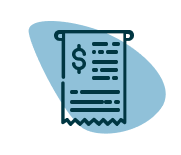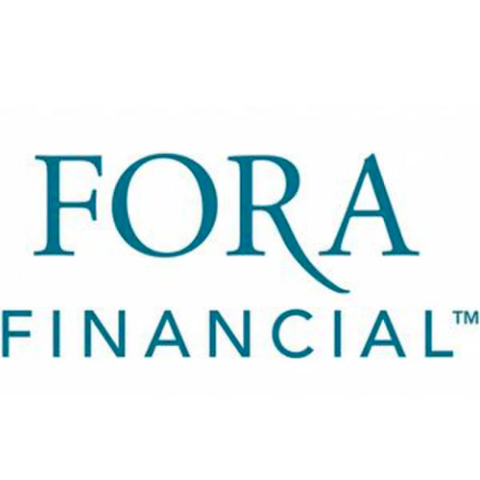What Is a Short-Term Business Loan?
A short-term business loan is designed to give small businesses fast access to funding to cover short-term capital needs. Typically, short-term business loans are used for managing cash flow, handling emergencies and unexpected opportunities, as well as bridging larger financing solutions.
Generally, a short-term business loan has terms of one year or less (sometimes 18 months or less) and is structured as a lump sum loan with repayments made on a daily or weekly schedule. Compared to other business loans, short-term loans often have smaller loan amounts and higher interest rates—but fund much more quickly.
Although some banks may offer this type of financing, short-term small business loans are most commonly available from alternative, online lenders. In this way, with streamlined application processes, fast funding, and flexible requirements, short-term loans are a great option for a variety of small businesses with a range of short-term financing needs.
Short-Term Business Loan Details
| Max. Loan Amount | Loan Term | Interest Rates | Speed |
|---|---|---|---|
| Up to $250,000 | 3 to 18 months | Starting at ~10% | As fast as 1 day |
- Set payment structure
- Limited paperwork required for application
- Fast to fund
- More flexible requirements than other business loans
- Suitable for a wide range of business purposes
- Interest rates are often higher than longer-term loans
- Repayment is often daily or weekly as opposed to monthly
- Frequent payment schedule can impede cash flow
The Best Short-Term Loan Lenders

OnDeck
Best for: Fast, short-term loans with the possibility of a prepayment discount.


Credibly
Best for: Access to short-term working capital or business expansion loans.

How Do Short-Term Business Loans Work?
Although there are a few different types of short-term business loans (which we’ll discuss below), most often these loan products are structured as straightforward business term loans.
In other words, you receive a set amount of capital from a lender upfront, and agree to pay it back, with the lender’s fees and interest, over a predetermined amount of time. As we mentioned above, short-term loans are most often available from alternative lenders, but can also be issued by banks.
Generally, short-term small business loans can be used for a variety of purposes, including:
- Working capital for mitigating cash flow gaps, purchasing inventory, covering payroll, paying taxes, etc.
- Taking advantage of unexpected business opportunities
- Covering emergencies
- Funding business expansion
- Refinancing other short-term debt
Overall, due to the urgency often associated with short-term business loans, these products are typically offered by lenders with online-based, streamlined application processes, who can fund them in just a few days.
Short-Term Business Loan Rates and Terms
On the whole, short-term business loans have terms of one year or less—although some lenders consider terms of up to 18 months as “short term.”
Generally, you’ll be required to make payments on your loan on a daily or weekly basis, whereas longer-term loans will have a monthly payment schedule. Similarly, whereas longer-term loans might be available in amounts exceeding $500,000, you’ll find short-term loans are usually available in amounts of $500,000 or less—sometimes, even $250,000 or less.
This being said, interest rates on fast short-term business loans will range based on the lender and your business’s qualifications, but you’ll typically find that they start around 10% and can reach as high as 65%. Compared to other types of business loans, short-term small business loans have higher interest rates, as the speed and ease of application makes this financing a riskier deal for the lender.
Of course, the better your business’s qualifications, the better rates you’ll be able to receive on a short-term loan.
Short-Term Business Loan Example
With this overview in mind, let’s break down a short-term business loan example—this will not only give you a better understanding of how most of these loans work, but will also offer insight into how much they cost.
Let’s say you’re offered a short-term loan of $100,000 with a repayment term of 12 months. You’ll be making weekly payments on the loan, which has an interest rate of 10% and origination fee of 5%.
To determine the true cost of this loan, you’ll want to plug in that information to a term loan calculator in order to calculate the APR and estimate your weekly payments. With this short-term loan example, therefore, you’ll find that your weekly payments will be $488.89—and the total cost of the loan will be $110,000—putting your APR at 6.93%.
All in all, with weekly payments and a 6.93% APR, this is a pretty affordable short-term business loan.
This being said, however, it’s important to note that some short-term lenders will charge interest differently, in the form of a factor rate, instead of a traditional interest rate. In this case, you might see a lender offer you a $100,000 short-term loan with a factor rate of 1.18.
In order to calculate the total cost of the loan here, you can either use a calculator (like we did above) or simply multiply 1.18 by $100,000 to get $118,000. Although, on the surface, this may not seem like much, you have to consider the repayment terms here too.
If the lender wants you to pay back the total loan amount on a daily schedule, over 12 months, you’ll be making 264 payments over that term (22 payment days per month). In this case, the amount of each of those payments would be $446.97, making the APR 33.98%—which is significantly higher than the rates of traditional term loans.
To this point, you’ll want to be careful with any short-term lender that charges a factor rate—as this rate doesn’t truly indicate the total cost of the debt. Additionally, these two examples also illustrate the difference between daily and weekly payments. Overall, weekly payments will be much easier to afford, so you’ll want to keep this in mind as well when comparing loan offers.
Types of Short-Term Business Loans
As we mentioned and described in our example above, typically short-term business loans are structured like any other traditional term loan. This being said, however, there are other variations on this type of financing, so you’ll want to keep these options in mind when trying to determine if a short-term loan (or which) is right for your business:
- Business line of credit: Unlike a traditional term loan, a business line of credit gives you access to a specific amount of capital, from which you can draw at any time. You only pay interest on the funds you draw—and typically, once you’ve repaid what you borrowed, your credit line resets to the original amount. Available from a variety of lenders, short-term lines of credit are one of the most flexible forms of financing.
- Invoice financing: With invoice financing, you receive an advance of capital that’s secured by your business’s unpaid invoices. A lender will generally offer up to 85% of the value of the invoices, with the remaining 15% (minus their fees) paid out when your customers pay their invoices. This type of short-term business loan is also available from many online lenders and is great for B2B and service businesses with invoice-based cash flow issues.
- Merchant cash advance: A merchant cash advance is a type of financing in which a company fronts you a set amount of capital in exchange for a percentage of your debit or credit card sales. In this case, you repay the amount you’ve borrowed on a daily or weekly basis with those sales, plus fees. Although this type of short-term loan allows you to repay your debt based on your sales, it’s by far the most expensive form of financing—with APRs that can reach over 100%.
Pros and Cons of Short-Term Business Loans
When it comes down to it, although there are a variety of different types of short-term business loans available from both banks and online lenders, this type of financing won’t be right for every small business owner.
Therefore, to help you determine whether a short-term loan is suitable for your business, we’ve broken down the possible advantages and disadvantages below:
Pros
- Set payment structure: Although short-term loans for business can have some variation, generally, these products are very straightforward with rates, terms, and a payment schedule that’s easy to understand. As we mentioned, these loans often require daily or weekly payments—and these payments are often fixed throughout the term of the loan. To this point, however, some lenders will charge additional loan fees, so you’ll want to be sure you understand and incorporate these costs into your payment schedule.
- Limited paperwork required for application: Overall, because these loans are typically issued by alternative and online lenders, you’ll find that the process to apply is quick and easy. These lenders normally offer online-based applications that require limited documentation. Some even allow you to connect your bank account or accounting software directly with their platform to expedite the underwriting process.
- Fast to fund: Directly related to our last point, short-term business loans are quick business loans. With a streamline application process and fewer loan requirements, many of these products can fund in as little as one day—meaning if you need access to capital fast, a short-term business loan is a great option.
- More flexible requirements than other business loans: Compared to traditional bank loans and SBA loans which require excellent credit and multiple years in business, the requirements for a short-term business loan are much more flexible. Although the specifics will vary based on the lender, you’ll find that a range of businesses can qualify for a short-term business loan, including both startups and businesses with bad credit.
- Suitable for a wide range of business purposes: Whereas certain types of business financing can only be used for specific purposes—or are only available to specific types of businesses—the same is not true of short-term loans. On the whole, businesses of all shapes and sizes (and in a range of industries) can qualify for and use this type of loan to fulfill any kind of short-term financing needs.
Cons
- Interest rates are often higher than longer-term loans: As we’ve mentioned, compared to other types of business financing, short-term loans have higher interest rates. When it comes down to it, fast funding is often expensive funding—and because these loans offer streamlined applications and more flexible requirements, lenders charge higher rates to mitigate their risk. To this point, although short-term loans are often ideal for startups and businesses with bad credit, these companies will often see the highest rates as they pose the greatest risk to lenders.
- Repayment is often daily or weekly as opposed to monthly: Whereas longer-term loans often offer a monthly payment schedule, short-term small business loans usually require a daily or weekly repayment schedule. Although this structure means you repay your debt more quickly, it also means larger, more frequent payments, which can significantly impact your cash flow.
Best Short-Term Business Loan Options
At this point, if you think a short-term loan might be right for your business, you’re likely wondering where to find one.
Luckily, as we’ve explained, these loans are available from a wide variety of lenders—which means you’re likely to find one that can meet your needs. In addition, this means you can compare and contrast what different lenders offer so that you can find a short-term business loan with the most ideal rates and terms.
This being said, although you might be able to find a bank that offers a short-term loan, these options are not very common—especially if you’re looking for fast funding. Therefore, you might start your search process by looking into the following short-term lenders:
| Lender | Funding Amounts | Interest Rates | Terms | How to Qualify | Best For |
|---|---|---|---|---|---|
Up to $250,000 |
27.2% to 99.9% (based on loans originated in the half-year ending March 31, 2024; minimums provided are rates that at least 5% of customers received) |
Up to 24 months |
625 credit score; $100,000 annual revenue; one year in business |
Fast term loan funding with larger loan amounts, simple application, plus prepayment discount |
|
Up to $400,000 |
1.15 to 1.45 factor rate |
Six to 18 months |
500 credit score; $15,000 monthly revenue; six months in business |
Fast access to short-term working capital or expansion loans; great for startups and businesses with lower credit scores |
|
Up to $500,000 |
1.1 to 1.3 factor rate |
Up to 15 months |
No credit score requirement; $12,000 per month in gross sales; six months in business |
Quick, flexible funding particularly for startups and businesses with lower credit scores |
|
Up to $1 million |
1.16 to 1.30 factor rate |
Three to 60 months |
550 credit score; $120,000 annual revenue; two years in business |
Short-term loans in larger amounts for established businesses including those with lower credit scores |
|
Up to $250,000 |
Fixed factor rate that varies based on your qualifications |
Six to 18 months |
650 credit score; $15,000 monthly revenue; two years in business |
Fast access to short-term financing, great for higher qualified borrowers who need funding quickly |
Qualifications for a Short-Term Loan



How to Get a Short-Term Business Loan
Ultimately, these are just five of the many lenders on the market that offer short-term loans for small businesses. If you think a short-term loan is suitable for your business, therefore, your first step to actually getting a loan will be choosing one or multiple lenders to work with.
After this, the process of getting a short-term business loan comes down to two pieces—first, determining whether or not your business will qualify—and second, completing the business loan application.
Qualifying for a Short-Term Business Loan
Generally, the specific qualifications you’ll need to meet will vary based on the lender you’re working with. After all, as we saw above, each lender will have standard qualifications for their loan products.
However, as we’ve discussed, the requirements for a short-term business loan will be much more flexible than other types of loans. For example, whereas SBA and bank loans often require two or more years in business, many short-term lenders will work with startups, including those that have less than a year in business.
To this point, many short-term business lenders emphasize cash flow more than lenders of traditional term loans. If you have a strong cash flow, you may be able to overcome other requirements that would typically disqualify a business for a longer-term loan.
In general, if you have a credit score of 600 or higher, at least one year in business, and an annual revenue of $100,000 or more, you should be able to qualify for a short-term business loan. Of course, it’s important to remember that your business’s qualifications will impact your interest rates—the better your qualifications, the lower interest rates you’ll be able to receive.
Applying for a Short-Term Business Loan
Once you’ve determined that you think you can qualify for a short-term business loan, you’ll be ready to actually complete and submit your application. As we’ve discussed, alternative lenders typically offer some of the fastest and straightforward processes on the market, allowing you to complete your application in only minutes, with limited documentation.
This being said, the specific information and documentation you’ll need to provide will vary based on the lender. On the whole, you can expect your application to require:
- Basic personal and business information, including an ID, business check, proof of business ownership, etc.
- Personal and business bank statements
- Business financial statements
- Personal and business tax returns
- Credit score
In addition, many short-term lenders will require that you sign a personal guarantee on the loan. Typically, fast short-term business loans don’t require collateral, however, some lenders may place a blanket lien on your business once you’ve funded with them.
Overall, most short-term small business loans can fund in one to two days. This being said, before you agree to any offer, you’ll want to ensure that you understand all the terms, rates, fees, conditions, and compare it to other lenders to get the best deal for your business.
The Bottom Line
At the end of the day, if you’re a business owner looking for working capital, there’s no doubt that a short-term business loan is worth considering.
Although these loans may have higher interest rates in comparison to bank or SBA loans, the speed, ease of application, and flexible requirements often make them a suitable investment for covering cash flow gaps, investing in new opportunities, or handling emergencies.
Therefore, if you think a short-term loan might be right for your business, you’ll want to compare multiple offers (keeping in mind the total cost of the debt) to find the one that’s most affordable. Ultimately, the best loan for your business is always the lowest-cost loan.
